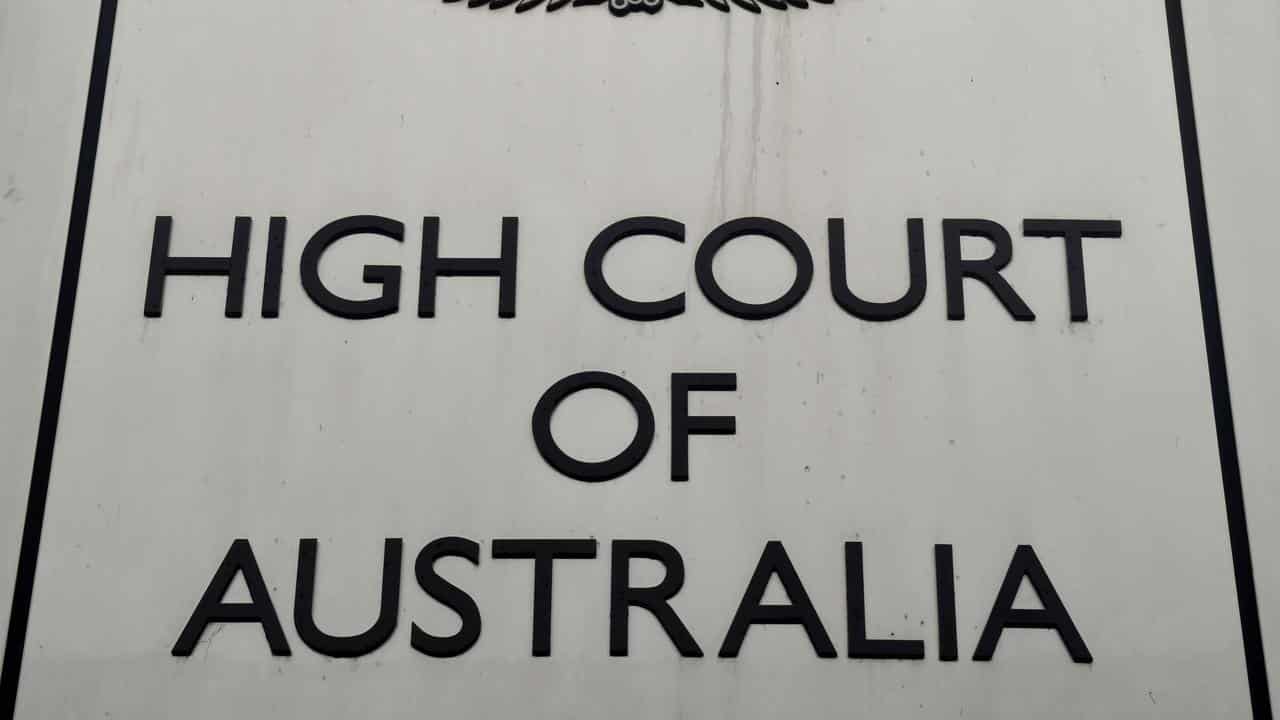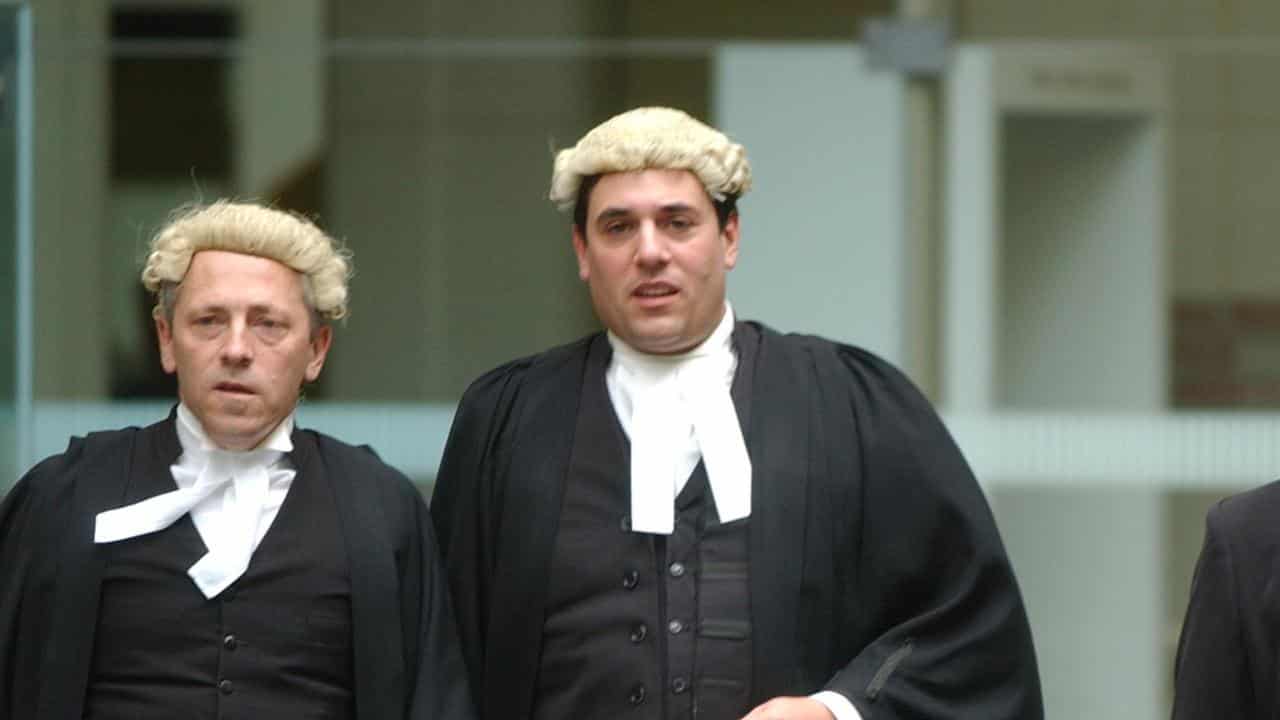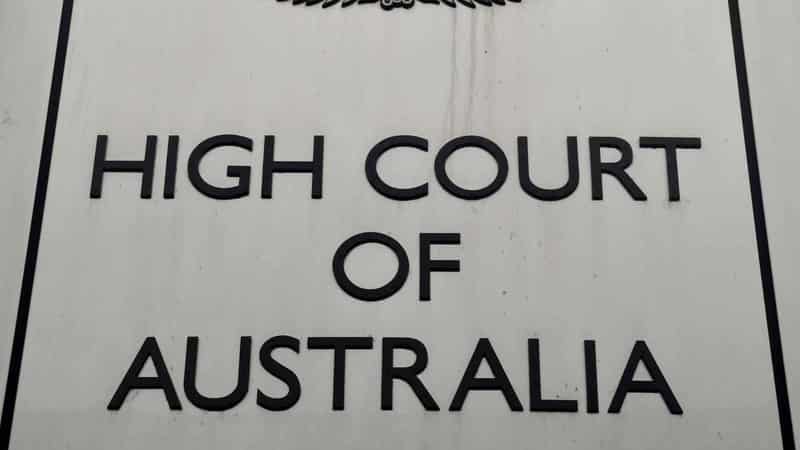
The nation’s top judges must decide whether the benefits of wide judicial immunity outweigh potential harm to individuals left unable to seek damages, a lawyer for a man who successfully sued a judge says.
Perry Herzfeld SC, representing the man known by the pseudonym Mr Stradford, made submissions on Thursday's second and final day of a High Court appeal hearing in Adelaide.
The hearing follows a Federal Court ruling that Mr Stradford was entitled to $309,000 compensation after being wrongly imprisoned for contempt during divorce proceedings in Brisbane, and Federal Circuit Court judge Salvatore Vasta was personally liable to pay part.

The judge and the federal and Queensland governments are each appealing the decision and the state of South Australia has sought to intervene, saying if the Vasta decision is upheld, SA police and prison authorities may be exposed to liability for executing unlawful orders made by "inferior courts".
One of the key issues is whether an "inferior court” judge is immune to lawsuits in the circumstances of this case and, if not, whether the High Court should create such an immunity.
In a written submission, Mr Herzfeld said the appellants’ policy arguments paid little attention to the position of a person such as his client, who was deprived of his liberty for a substantial period and suffered psychiatric injury as a result.
“The consequence of the appellants’ argument is that, in cases of this kind, victims of even the most egregious torts should have no remedy,” he wrote.
“The circumstances present an exquisite dilemma: do the potential benefits of an expansive judicial immunity outweigh the potential harm to individuals thus unable to obtain a remedy?”
In court on Thursday, he advanced arguments on why the court should not change the common law, saying there were “competing policy considerations at play”.
“The consequence of the appellants’ position is that in cases of the present kind, those whose liberty is taken away as a result of grossly improper judicial conduct, can’t claim damages,” he said.
“There is a policy choice: is that injustice outweighed by the benefit of an expansive judicial immunity?”
He said it was not necessary for him to persuade the court of the correct answer to that question “as if this were a parliamentary inquiry”.
“It's sufficient for us that the competing arguments render it suitable for Your Honours to apply the existing common law and to leave any further change to parliament,” he said.

“The appellants need to persuade Your Honours that the answer is so obvious as to sweep away the hundreds of years of authority on which we rely.”
Solicitor-General Stephen Donaghue KC previously told the court that the common law principles had always been recognised as serving an important systemic role in preserving the independence of the judiciary.
He conceded that protecting judicial immunity principles in this case was “capable of producing harsh results”.
In the original case, in August 2018, Judge Vasta ordered Mr Stradford to disclose gambling account statements.
The proceedings were adjourned and, following a brief hearing before another judge, returned to Judge Vasta in December 2018.
Wrongly believing the other judge had already decided Mr Stradford was in contempt, Judge Vasta sentenced the father of two to six months' jail for disobeying orders to provide financial documents.
Mr Stradford appealed and six days later, Judge Vasta conceded he had erred and ordered his immediate release.
In February 2019, the Full Court of the Family Court overturned the sentence.
Mr Stradford successfully sued Judge Vasta for false imprisonment.
In his judgment last August, Federal Court Justice Michael Wigney also found the Commonwealth and Queensland to be vicariously liable for court, police and correctional officers following Judge Vasta's orders.
The compensation awarded included $50,000 in exemplary damages payable by Judge Vasta “to deter any repetition of such a thoroughly unacceptable abuse of judicial power”.
The High Court has reserved its decision.









